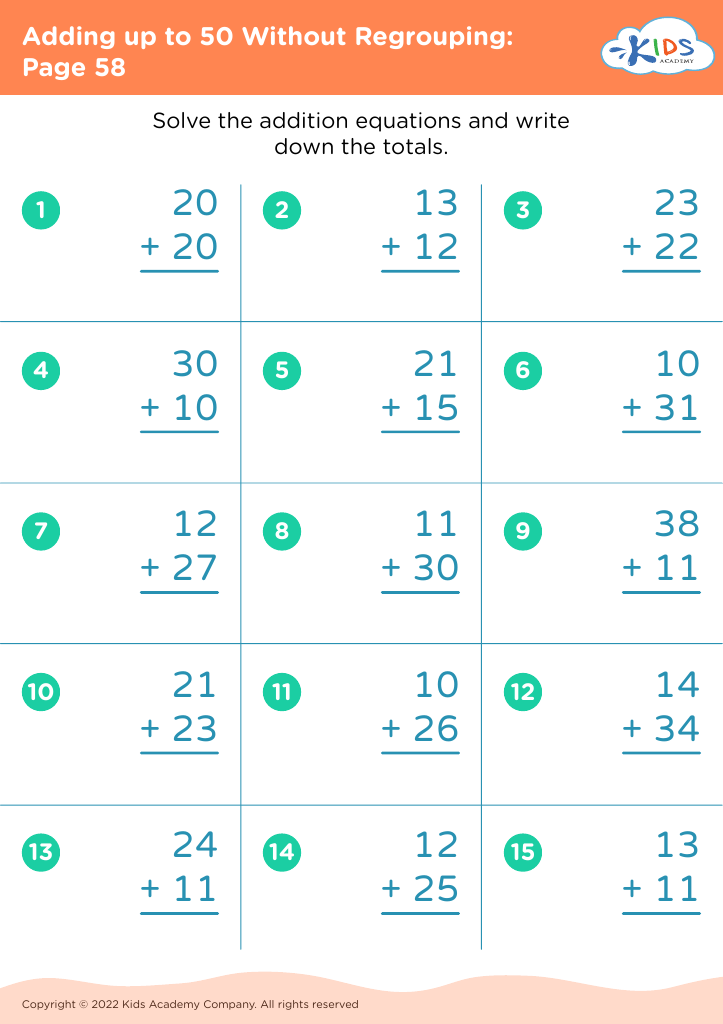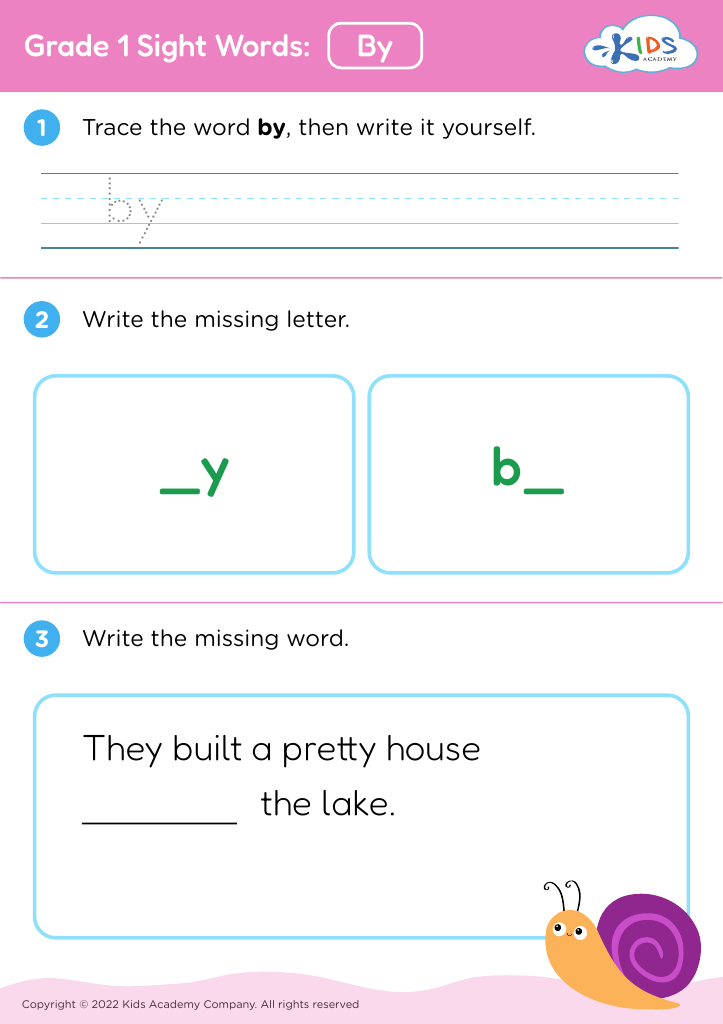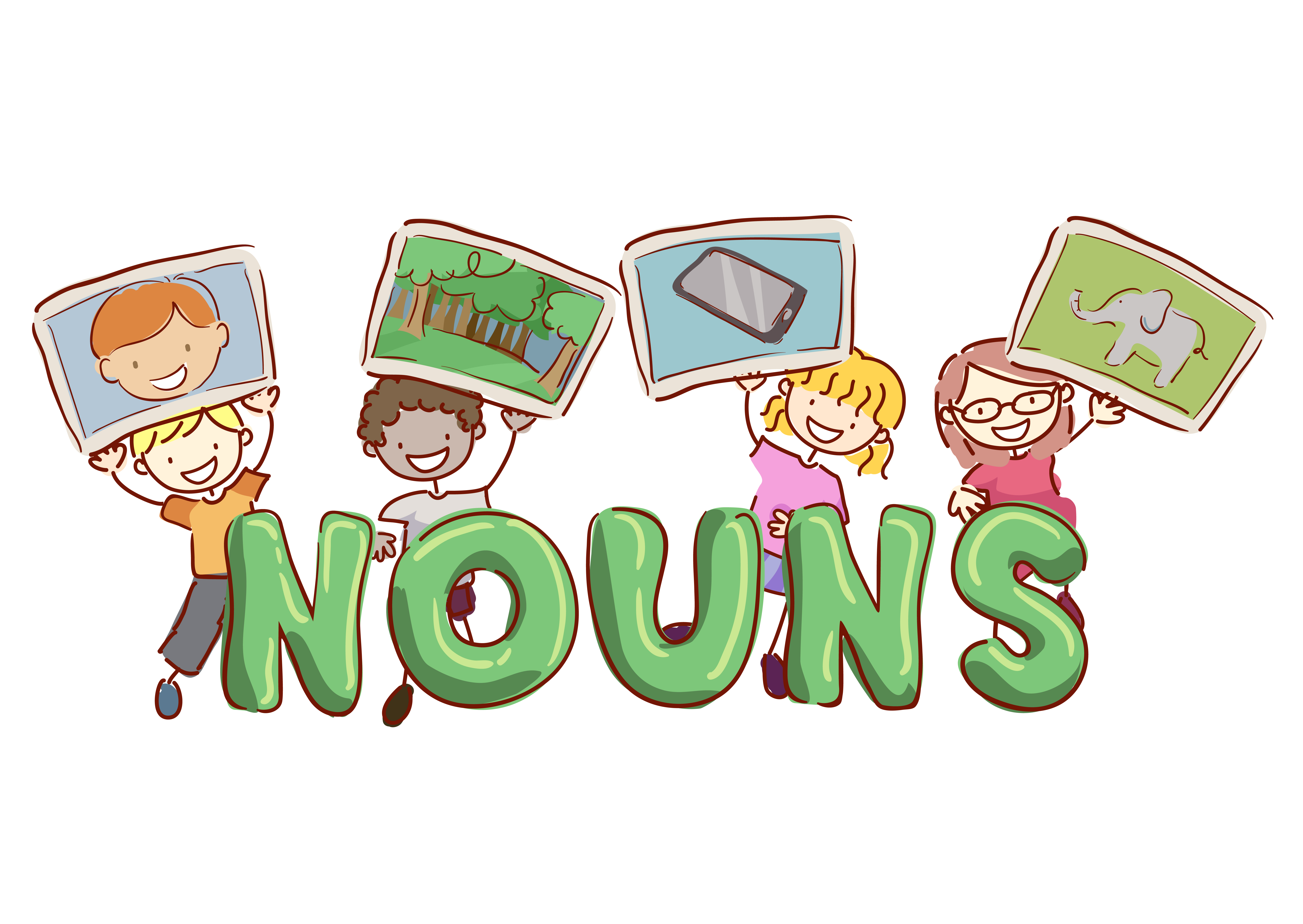Enhancing observational skills Worksheets for Ages 5-7
9 filtered results
-
From - To
Enhance your child's observational skills with our engaging worksheets designed specifically for ages 5-7. These interactive resources promote critical thinking and help young learners develop essential skills through fun activities. Each worksheet encourages students to closely examine images, identify differences, and make connections, fostering their analytical abilities. As children investigate their surroundings, they gain confidence in their observational prowess while enjoying vibrant illustrations and playful themes. Our worksheets align with early education standards, making them perfect for classroom settings, homeschooling, or extra practice at home. Empower your little ones to explore the world around them with our thoughtfully crafted activities today!
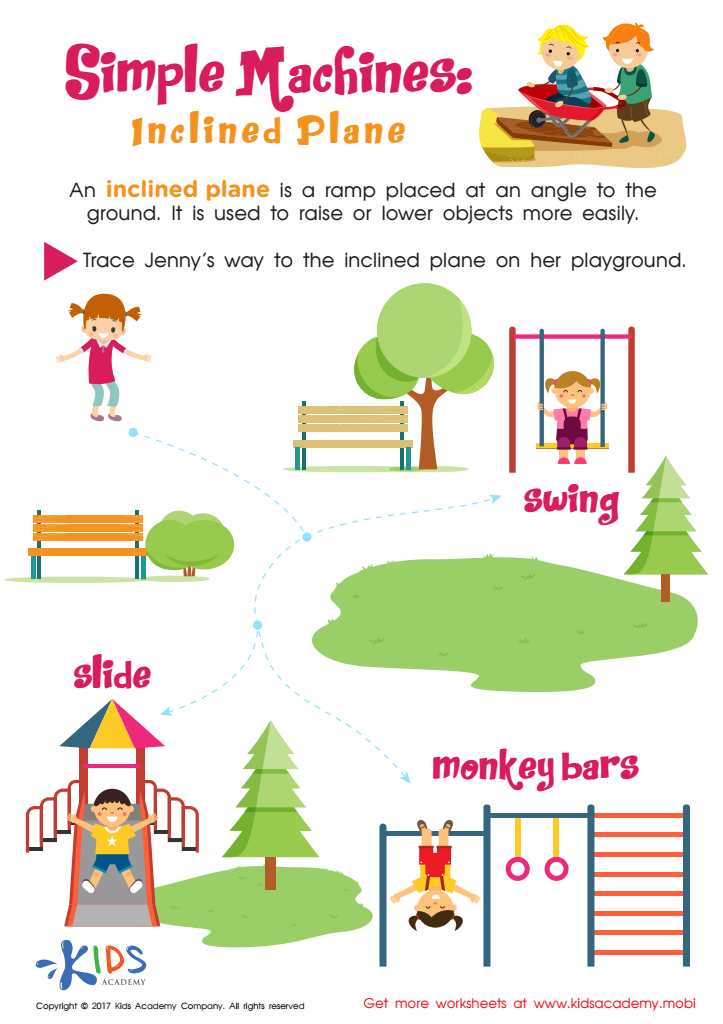

Simple Machines Inclined Plane Worksheet
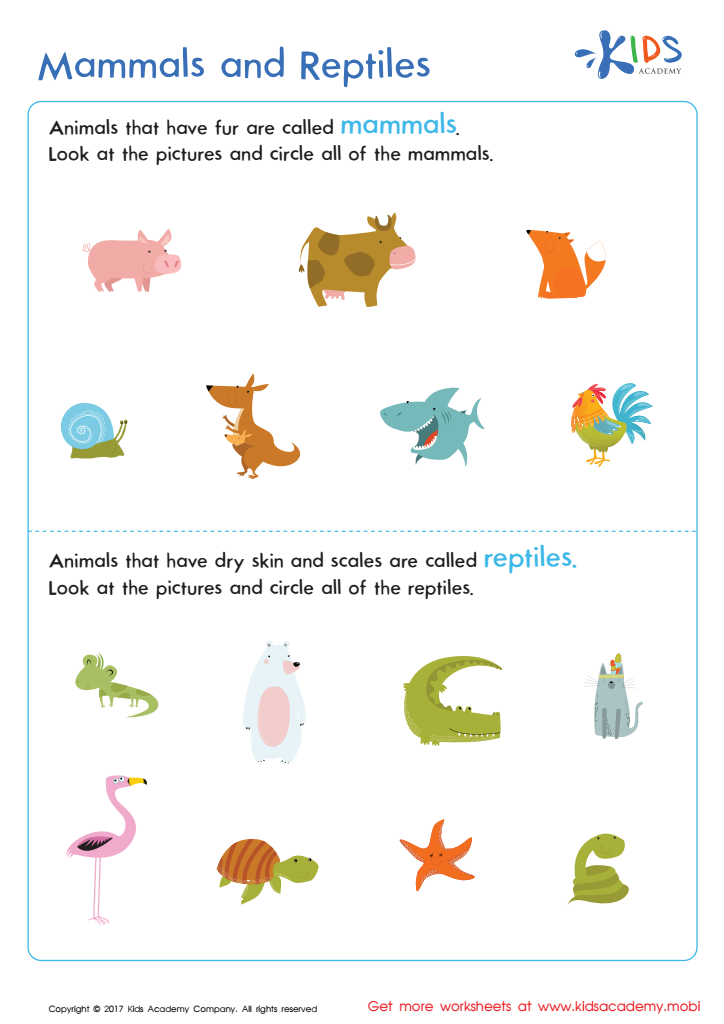

Mammals and Reptiles Worksheet
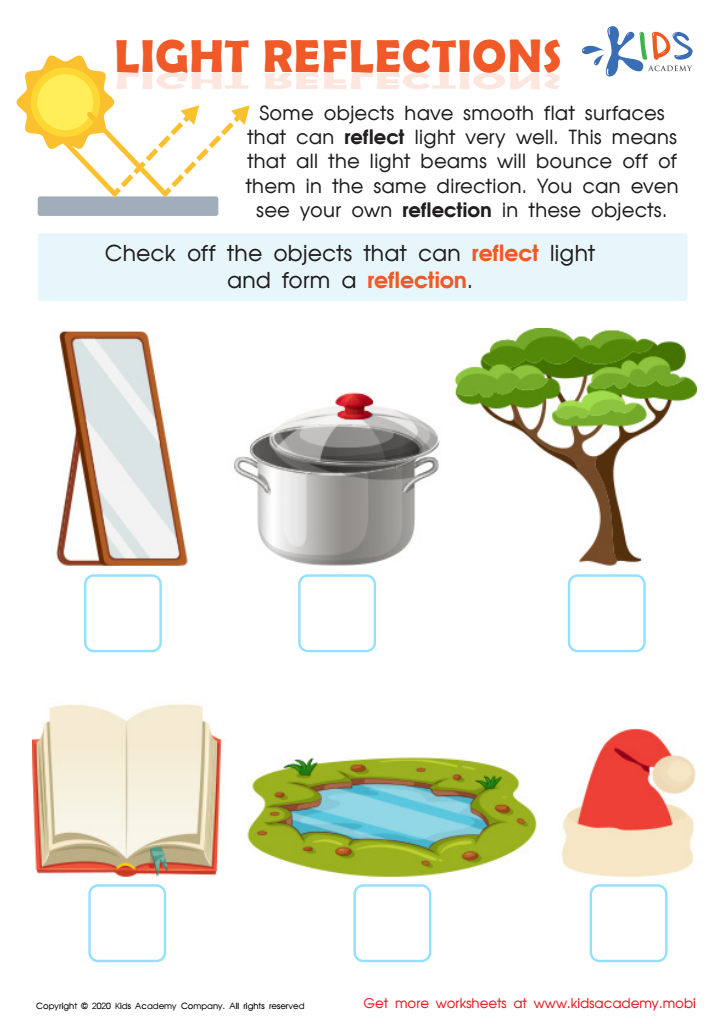

Light Reflections Worksheet
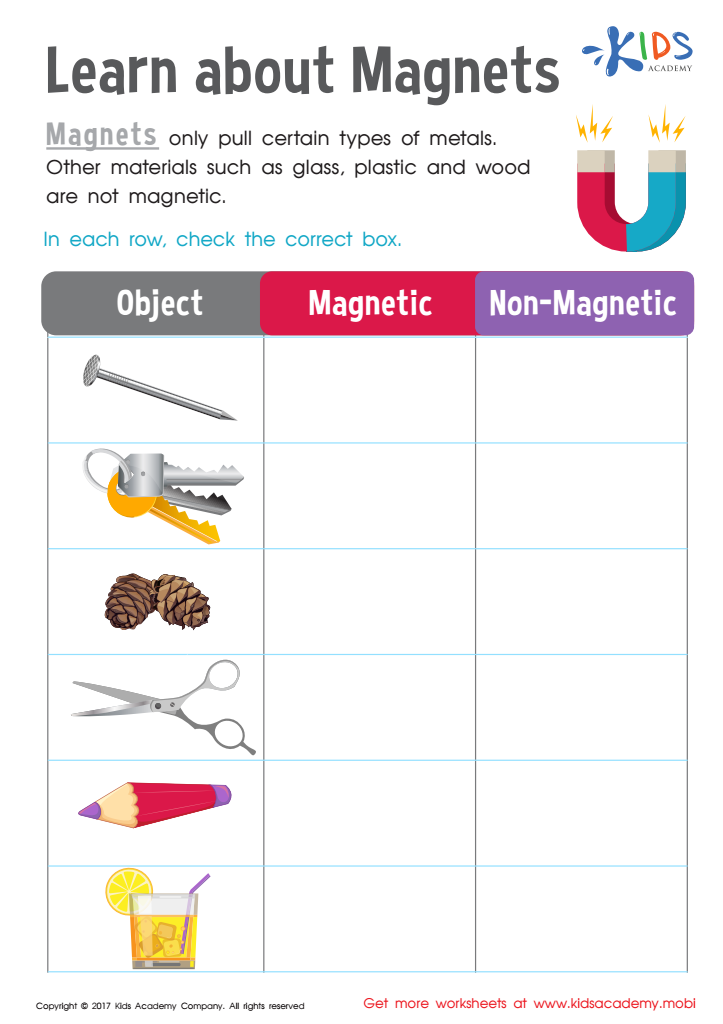

Magnetic Or Not Worksheet
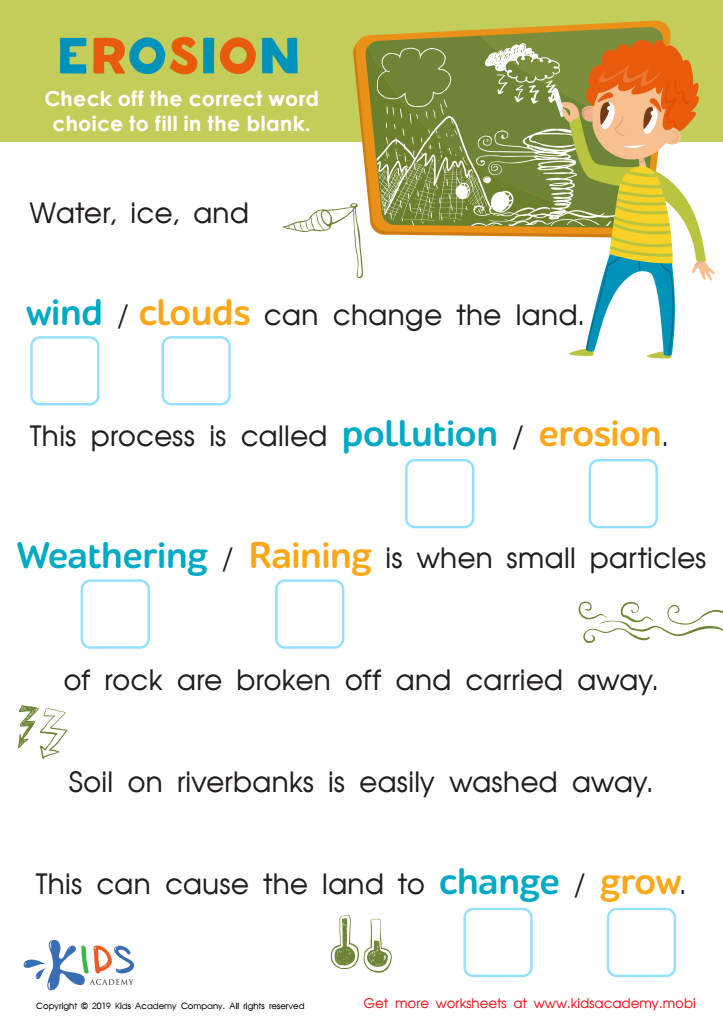

Erosion Worksheet
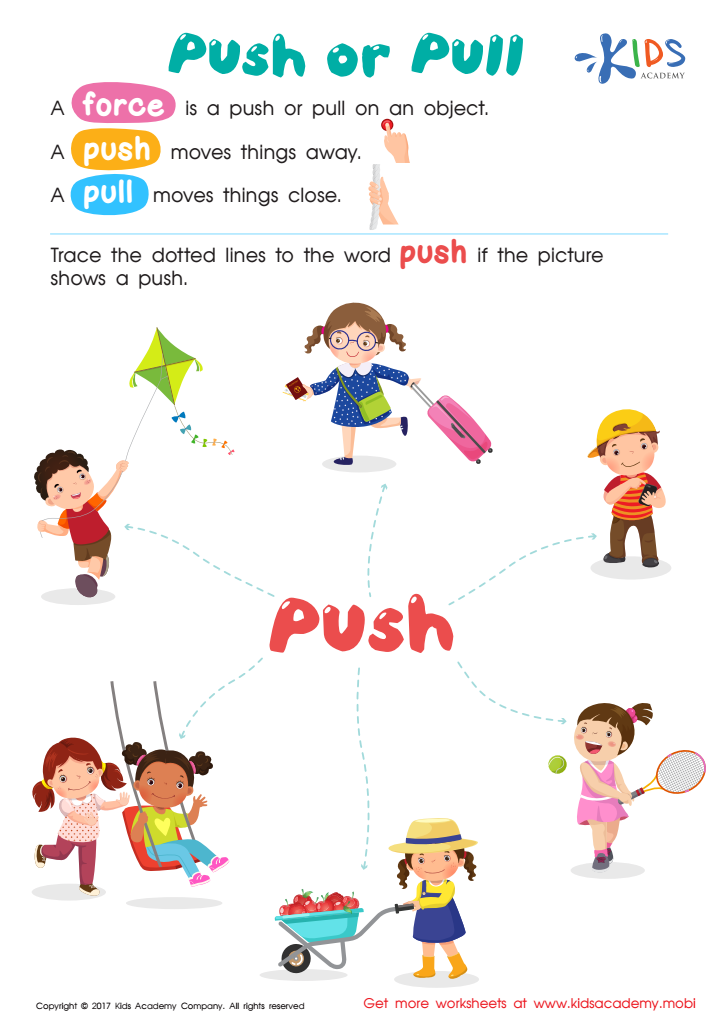

Push or Pull Worksheet
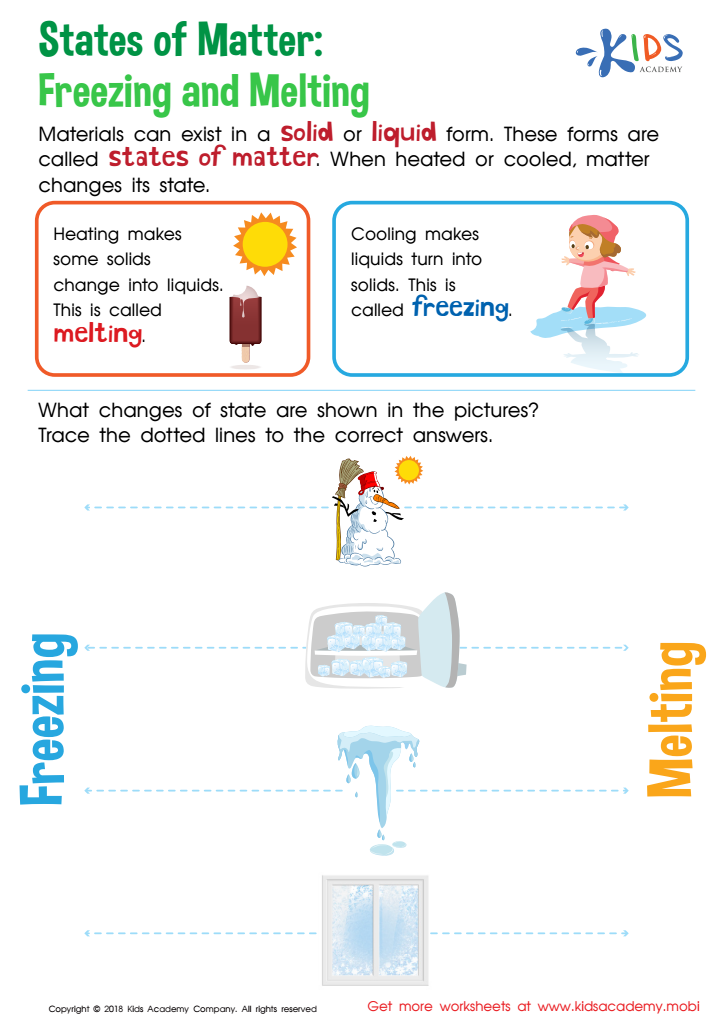

States of Matter: Freezing and Melting Worksheet
Enhancing observational skills in children aged 5-7 is vital for their holistic development. At this stage of growth, children are naturally curious and eager to learn about the world around them. Supporting and refining these observational skills fosters critical thinking, creativity, and problem-solving abilities.
Parents and teachers should prioritize observational practices in daily activities, allowing children to engage closely with their environment. Whether it's noticing patterns in nature, recognizing emotions in their peers, or identifying different shapes and colors, these skills enhance their ability to collect information and make constructive judgments.
Furthermore, strong observational skills promote language development, as children learn to articulate their observations and express their thoughts and questions. Such skills also lay the groundwork for scientific inquiry, as they discover how to formulate hypotheses and draw conclusions based on their observations.
Additionally, fostering an observant mind encourages attentiveness and mindfulness, essential traits for focused learning. Weaving observational activities into play and learning experiences aids social-emotional development, as children become better at understanding and empathizing with others.
In sum, enhancing observational skills is crucial for nurturing well-rounded children who can think critically, communicate effectively, and engage with the world meaningfully.
 Assign to My Students
Assign to My Students

